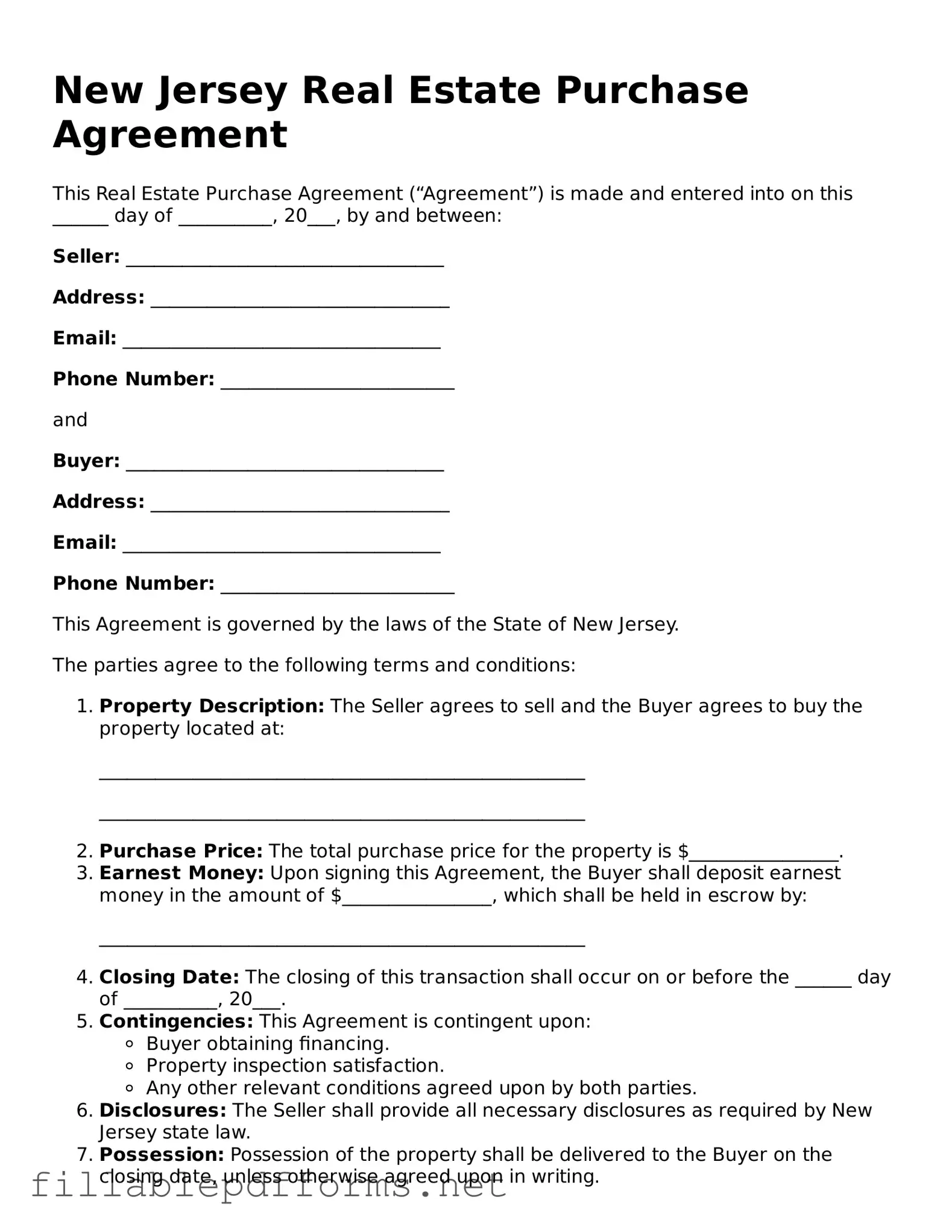Attorney-Verified Real Estate Purchase Agreement Form for New Jersey State
The New Jersey Real Estate Purchase Agreement is a legal document used to outline the terms and conditions of a real estate transaction between a buyer and a seller. This form serves as a binding contract that details the obligations of both parties involved in the sale. Understanding its components is essential for anyone participating in a property transaction in New Jersey.
Launch Editor Here

Attorney-Verified Real Estate Purchase Agreement Form for New Jersey State
Launch Editor Here

Launch Editor Here
or
▼ Real Estate Purchase Agreement PDF
Almost there — finish the form
Complete Real Estate Purchase Agreement online fast — no printing, no scanning.